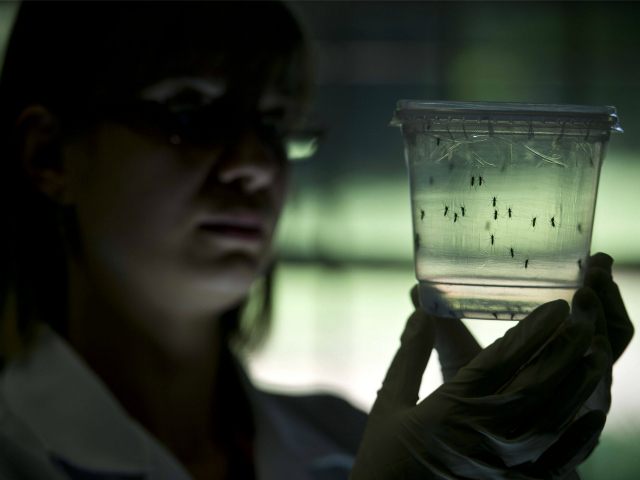The Texas Department of State Health Services (TDSHS) confirmed 10 cases of the Zika virus statewide on Wednesday while the latest number of reported cases continues to climb.
The latest statistics show seven cases in Harris County (Houston), one in Bexar County (San Antonio), and two in Dallas County (Dallas) where Tuesday, health officials announced the first case of the Zika virus being sexually-transmitted in the United States. The second case in Dallas County accounts for “patient zero,” the individual who contracted the virus on recent travel to Venezuela and then, once back in Dallas, transmitted the virus through sexual contact to a partner.
Sexual transmission of the virus raised concerns about how the virus spreads. Dallas ABC-TV affiliate WFAA 8 reported that while scientists continue to study if the virus was transmitted through blood or semen, the findings of this research could result in “two very different things.” Currently, the two Dallas Zika patients are not quarantined because Dallas County health officials maintain Zika virus symptoms are mild and non-life threatening. “Patient zero” was, however, asked to refrain from sexual contact with any other people. The person who contracted Zika virus through sexual contact is reportedly not pregnant.
Texas Health Dallas Epidemiologist Dr. Edward Goodman commented: “If a person is traveling to one of those 26 countries that have been declared by the Pan American and World Health organizations to be transmitting the disease…they should use condoms for their sexual contacts until they are well beyond the period where they could have acquired (Zika virus) or transmitted it.” He added that the incubation period is approximately one to two weeks and if a person is back three or four weeks, he or she is likely “not at risk” anymore.
However, those considered most at risk from Zika virus remain pregnant women and women trying to conceive because of the suspected link to serious birth defects, most notably, microcephaly, a condition where babies are born with small heads and deformed brains. The World Health Organization (WHO) declared Zika virus a “global health emergency” because of these suspected gestational abnormalities. Incidences increased during Brazil’s 2015 Zika virus outbreak. The CDC continues to advise pregnant women, as well as all individuals, that the best way to protect themselves from Zika virus is by avoiding travel to the affected countries with high rates of Zika virus.
University of Texas Southwestern and Children’s Hospital’s Dr. Jeffrey Kahn told NBC DFW that infected people could infect the mosquitos and “start the transmission cycle.”
Although sexual transmission raises key concerns about the virus spreading, most officials remain concerned with local mosquitoes becoming infected by an individual diagnosed with the Zika virus. While there are no reports of the virus being spread by local mosquitoes, this kind of transmission is possible now that Zika virus is in Texas. Dallas County Judge Clay Jenkins feels better prepared for a potential local mosquito-borne Zika virus outbreak than in 2012 when West Nile virus hit, citing the county’s plan to survey, trap, spray and eradicate affected Aedes mosquito populations. The same type of mosquito spreads Dengue fever and Chikungunya.
The most common symptoms from Zika virus are fever, rash, joint pain, and conjunctivitis (pink eye) that can last from several days to a week. In Dallas, health officials ask residents with symptoms to visit their doctors if they have visited an area where Zika virus is prevalent or if they had sexual contact with a person who recently traveled to a Zika affected area.
Texas health department officials recommend ways to minimize mosquito bites, in general, such as using daily EPA-registered insect repellents that contain DEET plus permethrin-treated clothing and gear. They also advise wearing long, loose fitting and light-colored close when outside, removing all standing water in and around the exterior of the home, and limiting outdoor activities during dusk and dawn hours when mosquitoes are most active.
Follow Merrill Hope on Twitter @OutOfTheBoxMom.

COMMENTS
Please let us know if you're having issues with commenting.